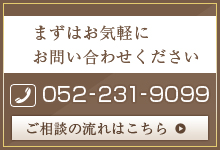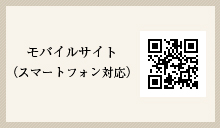On the Ministry of Justice website, there is a “Response by MORI Masako, Minister of Justice, to the articles of the Wall Street Journal” dated January 15 this year. Incidentally, Minister Mori embarrassed herself in front of the whole world by saying that “the defendant should prove innocence.”
(subscription required to read the full text)
http://www.moj.go.jp/EN/hisho/kouhou/20200115.html
The gist of her response is that the editorials of the Wall Street Journal “don’t accurately reflect the Japanese criminal justice system.” She makes her counter argument by (1) giving the reason behind the high conviction rate, (2) claiming that the accurate and precise investigation processes, which support the high conviction rate, are grounded on the due process of law, and (3) insisting that there is a system for issuing warrants whereby judges review requests for warrants. However, she looks away from the inconvenient truth, and as such, her argument is pitiful.
If she were addressing the domestic audience, I wouldn’t bother doing anything about it, as it is not worth my time to take her argument seriously. But I can’t let her lie to the rest of the world. So I decided to take this up in this column, even though I know I would end up stating the obvious.
First, I will comment on points (1) and (3). On point (1), the high conviction rate, Mori holds that it is only natural that the rate of those that are found guilty is high (99.3%) because the number of indictments is taken as the denominator in a system where the prosecutor painstakingly chooses the cases to indict. That, in and of itself, is not necessarily wrong. But what about using the number of cases where the defendant is denying the charges as the denominator? According to the judicial statistics of fiscal year 2018, of the 4,626 cases where the defendant pled “not guilty” at district courts across Japan, the number of cases that led to acquittals or partial acquittals was a total of 168. Consequently, that means that the rate of conviction among those that deny their charges is 96.3%. In other words, 24 out of 25 that claim innocence are found guilty. If she thinks this kind of conviction rate is appropriate, then she should say so. She is misleading the readers on purpose by hiding inconvenient numbers.
As for point (3), again, according to the judicial statistics of fiscal year 2018, the ratio of the detention warrants issued at all the district courts across the country, by (boldly) simplified calculation, is 95.7%. This is derived from the number of dismissals of requests for warrants, 4,302, divided by the sum total of the number of detention warrants issued, 95,956, and the number of dismissals, 4,302. Facing the situation where, of the 20 suspects whose detention is requested for by the prosecutor, 19 are detained for 10 days, can anyone reasonably conclude that rigorous judicial review is working properly? Even if the system is designed with the principle of judicial review of warrants, it is meaningless if it is not functioning correctly. Again, she is misleading the readers on purpose by choosing not to mention any numbers.
Now, let me comment on point (2). Mori, in her response, seems to imply that intense (in the original Japanese version, she uses the expression “accurate and precise,” meaning “detailed”) investigation and interrogation is unavoidable for making a careful decision on whether or not to indict. On the other hand, she says that (i) the guarantee of the right to remain silent and (ii) the right to consult with lawyers exclusively and that (iii) audio/visual recording, which is conducted in place of lawyers being present during interrogations, are in place so that confessions are not pursued through abusive interrogation.
First of all, (i) the right to remain silent does not have any substance. In Japan, even if you exercise your right to remain silent, interrogation won’t be stopped. The suspect is subject to endless questioning by the investigators in a small interrogation room without any lawyers present. It can go on for days on end, over long periods of hours, sometimes late into the night or early in the morning. The suspect is exposed to an extremely high level of stress. When the interrogation does not stop even if you exercise your right to remain silent, then one can’t say that the right to remain silent is substantially guaranteed.
As for (ii) the right to consult with lawyers exclusively, it is true that when lawyers and the suspect meet, they can do so without any official being present. If they are not allowed to meet exclusively, then one would have to conclude that they live in a dictatorship. It is not that bad in Japan. However, as I will describe later, the right to seek counsel is not recognized during the interrogation, which is when the suspect needs counsel most. This being the case, I would have to conclude that the “right to counsel” in Japan is, all in all, insufficient.
Point (iii) is that it is not a problem even if lawyers are not allowed to be present during interrogations because audio/visual recording is conducted [based on a partial amendment of the Criminal Procedure Law in 2016]. On this point, it is a well-known fact that roughly 3% of all the cases are subject to mandatory audio/visual recording of interrogations. More than anything, for the overwhelming majority, 97% of suspects, we still have the absurd situation where the party that is supposed to be monitored is given the choice of whether or not to be monitored. If the investigator deems it appropriate, audio/visual recording can take place, and admittedly, there is a certain volume of such recordings. However, such voluntary audio/visual recording is hardly ever conducted at the stage of police interrogation. By not giving such numbers accurately, she is, again, misleading the readers on purpose.
I should raise another point related to this. The argument that audio/visual recording can be an alternative to lawyers being present during interrogation includes the issue of slighting the role of lawyers, downplaying it to that of a surveillance camera. I can see that obvious acts of violence and threatening will be reduced if audio/visual recording is conducted, even if lawyers are absent. However, the role of the defense counsel is not limited to that. For instance, defense counsel can advise clients on the exercise of the right to remain silent, or rebuke the investigators if there is a danger that the assumption behind the interrogation is based on incorrect information. By taking such action, lawyers should give effective assistance so that interrogations can be an appropriate forum for the suspect to express his/her own opinion. Without such assistance, the suspect is not guaranteed an appropriate opportunity to express his/her opinion, and loses his/her independence. Mori does not accurately explain the role of defense lawyers, and therefore, the right to counsel of the suspect.
I am aghast that she has the nerve to claim that the “editorials don’t accurately reflect the Japanese criminal justice system” when she doesn’t show the correct numbers and repeatedly dodges the real issues. Over several decades, we, the criminal lawyers in Japan, have been calling for a move away from the “hostage justice system” which coerces confession. It is long overdue, but that can’t be a reason to refuse reform. That would be unacceptable. We need to change the law and its implementation.
(Kanaoka, Attorney-at-Law)


















